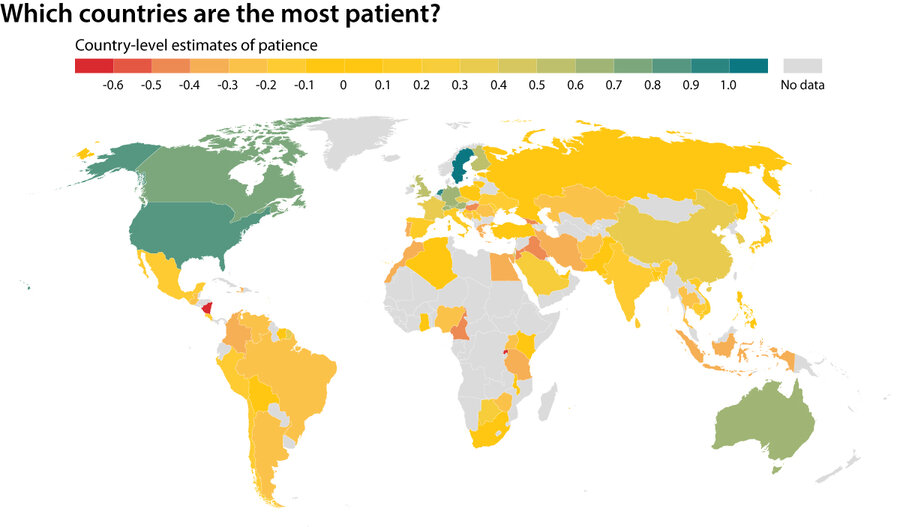Why wealth and patience appear to go hand in hand
Loading...
Patience may be a virtue, but it could also be a key economic indicator.
Economists are interested in values like patience, altruism, and trust because they play key roles in how people behave. Those individual and collective behaviors can have wide-ranging effects on a nation’s propensity for armed conflict, trajectories of per capita income, and expansion of entrepreneurial activities.
Levels of patience, for instance, vary widely from country to country, according to an analysis of survey data collected from 80,000 adults in 76 countries. Sweden, the Netherlands, and the United States topped the list, with Nicaragua, Rwanda, and Georgia at the bottom.
Why We Wrote This
Patience is often thought of in terms of social interactions. But the ability to bide one’s time also plays into national economics.
Patience, it seems, is associated with factors that are key for upward mobility. Patient individuals, for example, not only were more likely to save but also had higher education levels, researchers found.
It may not be a coincidence that some of the wealthiest nations in the world rank as the most patient, says Armin Falk, a professor of economics at the University of Bonn and lead author of the analysis.
“The more patient people are and the more they save,” Professor Falk told the German newspaper Handelsblatt, “the more they can invest in equipment and education – and they become that much more productive and rich.”
While individual choices combine to shape national landscapes, the inverse is not always true. Professor Falk and his colleagues found wide variations within individual countries.









